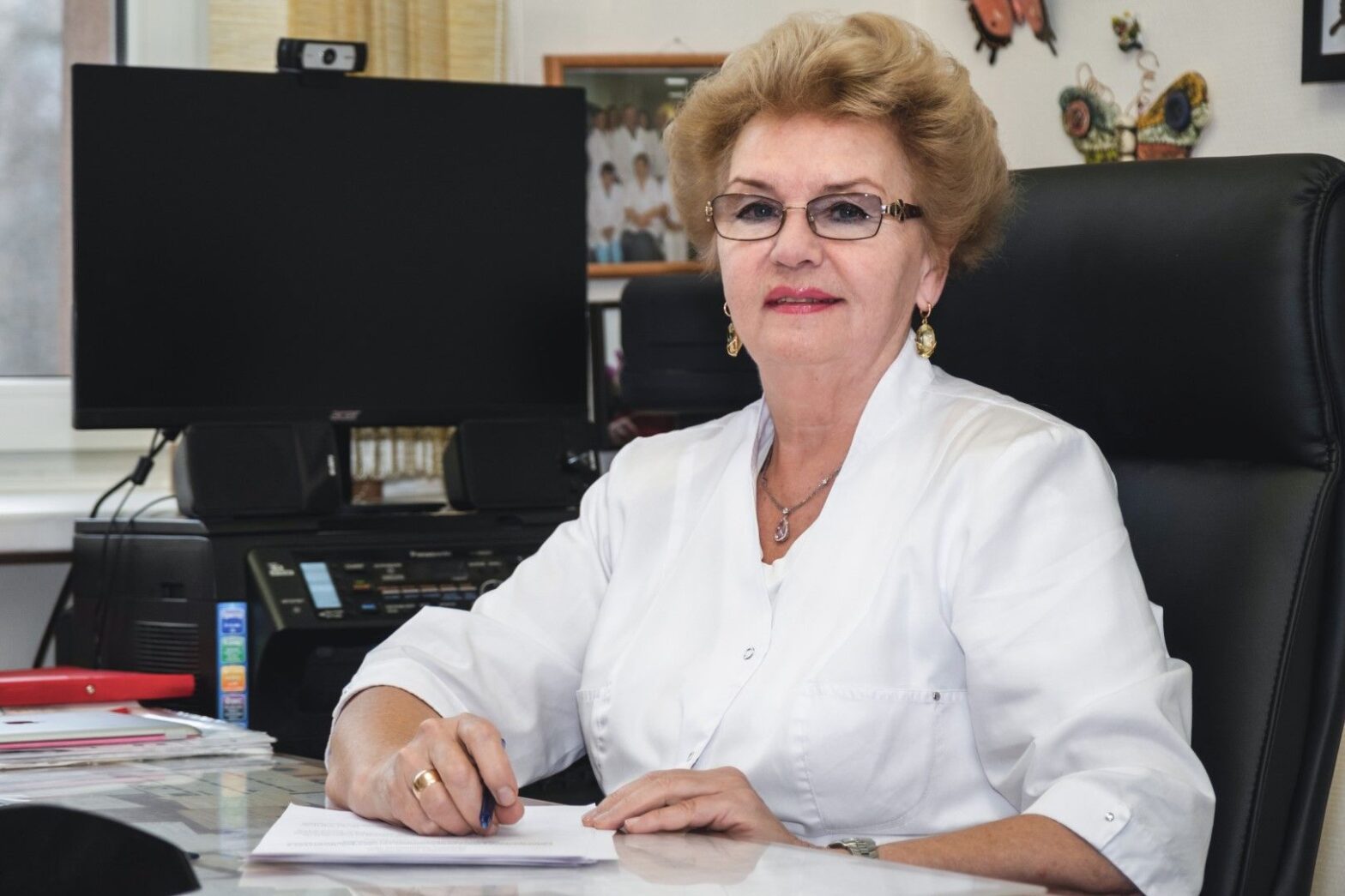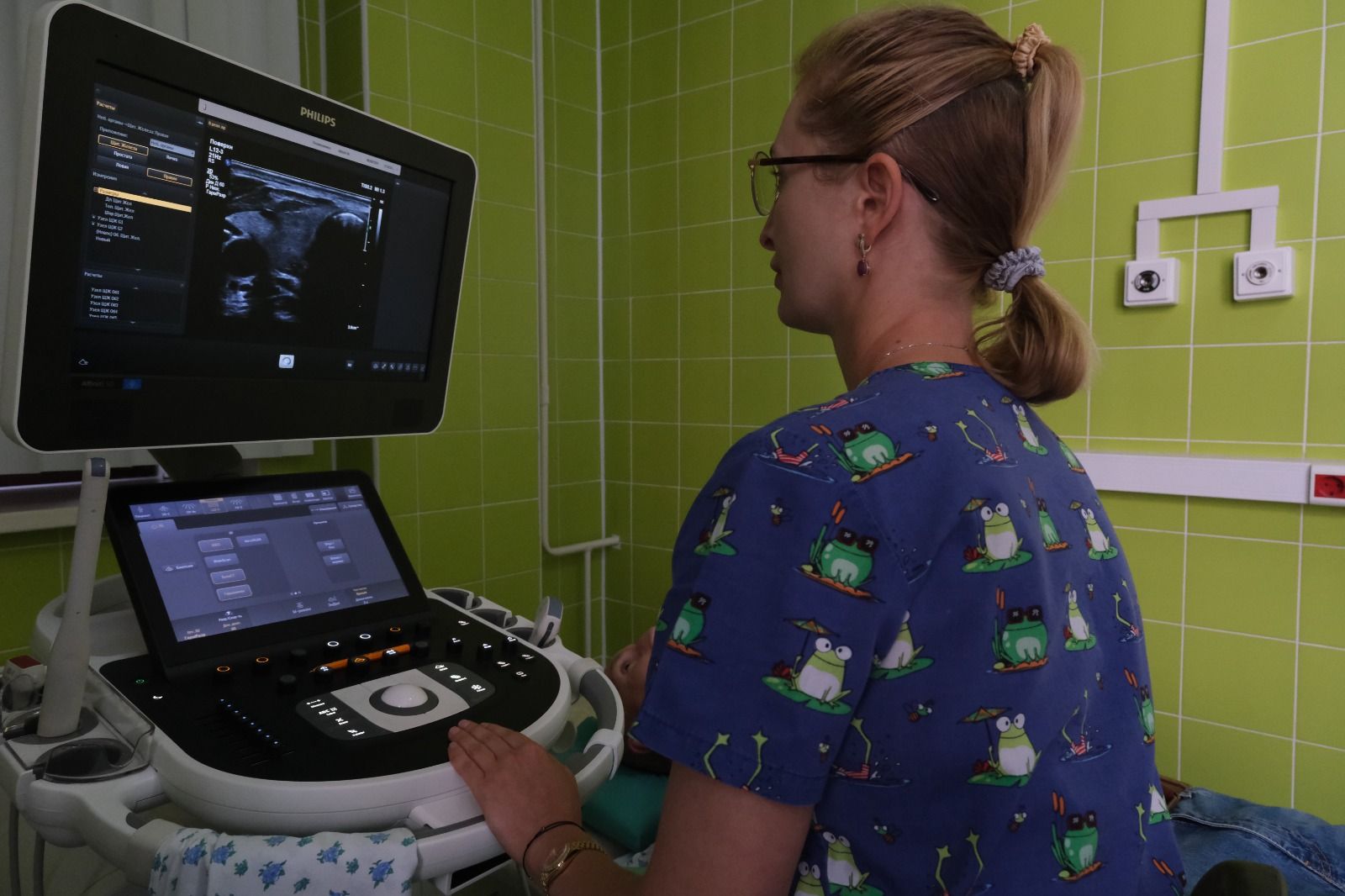
Department of Gynecologic Oncology
Elena Grigorievna Novikova – deputy head of the department of tumors of reproductive and urinary system, P.Hertsen MORI, Honored Doctor of Russia, Honored Scientist, winner of the State Prize of Russia, winner of the prize “Vocation”, Doctor of Medical Sciences, Professor.
Under the guidance of Elena Grigorievna were developed new types of cervical, endometrial and ovarian cancer treatment, which allowed young patients to realize their reproductive function after cancer treatment. With her direct participation, original highly effective schemes of combined and complex treatment of disseminated forms of malignant neoplasms of female genital organs were introduced into clinical practice, including with the use of the latest methods of antitumor treatment and modern chemotherapeutic drugs.
Diseases handled by a gynecologic oncologist
The diseases that the gynecologic oncologist works with include:
- Cervical cancer is a malignant neoplasm that develops in the cells of the cervix. It is often associated with human papillomavirus (HPV) infection and needs regular screening for early detection.
- Endometrial cancer is a tumor that develops in the mucous membrane of the uterus. This type of cancer can manifest with abnormal uterine bleeding and requires a comprehensive approach to diagnosis and treatment.
- Ovarian cancer is a malignant growth that can occur in one or both ovaries. It is often detected in late stages, making early diagnosis particularly important.
- Vaginal cancer is a tumor that forms in the tissues of the vagina. It can be either primary or secondary if the tumor has metastasized from other organs.
- Cancer of the external female genitalia, malignant tumors arising on the lips or other parts of the external genitalia.
- Benign tumors, such as uterine myomas or ovarian cysts, which may require monitoring and, in some cases, treatment.
- Precancerous conditions such as cervical dysplasia, which can lead to cancer if not diagnosed and treated in time.
- Hormonal conditions that may be associated with tumor development: for example, polycystic ovarian syndrome (PCOS).
Each gynecologic oncologist develops an individualized treatment plan for his or her patient, taking into account the stage of the disease, general health and body characteristics.
Get a consultation on treatment
If you want to confirm the established diagnosis or clarify the recommended treatment tactics, you can apply for a “second opinion” in the P. Hertsen Moscow Oncology Research Institute (MORI) – branch of the National Medical Research Radiological Centre (NMRRC) of the Ministry of Health of the Russian Federation
The main purpose of the appointment is not just to help with symptoms, but to identify hidden problems in the early stages, when treatment is most effective.
To exclude the diagnosis or confirm treatment tactics, the following types of studies may be prescribed, if the patient has no protocols for diagnostic screening and treatment:
Colposcopy; Biopsy; DNA typing for HPV; ultrasound; MRI of the small pelvis with contrast; X-ray diagnosis; CT scan of the chest, abdomen, pelvic organs; mammography; colonoscopy; gastroscopy; cystoscopy, etc.
Such an appointment differs from a regular visit to a gynecologist by its narrow focus on oncologic aspects, which makes it especially important for a woman’s health.




